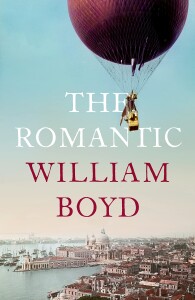
An unusual novel, my book club’s pick for this month covers the life of Cashel Greville Ross from his time as a young child in Ireland, through 451 pages of adventures, to his death. Born in December, 1799, Cashel’s 82 years covers most of the 19th century, and his adventures hit most of the touchstones of that period.
For example, when he gets disillusioned as a teenager, drops out of school, and joins the army, he ends up in the Battle of Waterloo. When he travels to Italy, he becomes friends with Byron and the Shelley ménage. This is a picaresque novel, like Don Quixote, where each chapter is almost a stand-alone story, with a new challenge for the protagonist and a new setting.
It’s great fun, seeing where a new chapter will take Cashel as he travels the world in pursuit of his next great scheme for living. Should he be a lover, an explorer, a writer, a farmer? This question of how to live your best life is far older than Oprah or Mary Oliver. Montaigne’s Essays are primarily multiple attempts to answer it.
The change of scene and story in each chapter becomes a huge challenge for a writer, which Boyd rises to brilliantly. He must have done a tremendous amount of research in order to create a new world in each chapter, full of a stunning amount of period detail. Also, since Cashel’s adventures are often tied to real events and people, each one had to be meticulously studied.
What ties it together, besides the dazzling writing and Cashel himself, is the theme named in the title. The question at the heart of the Romantic Movement in the 19th century is whether we should value our feelings over our rational thoughts. Which should prevail as we make large and small decisions? The Romantics plumped for the former, in reaction to the previous century’s Enlightenment, which prized science, facts, and logic above emotions. Thus, Cashel often allows his emotions to dictate his actions, with mixed consequences.
This theme of feelings versus logic is of interest to me. Of course, nothing could be more relevant to our society’s current discord between those who believe a statement is true because they feel like it is and those who look for facts and proof and logic to support it. Over the course of my own long life, I’ve also considered this theme, and questioned how much one or the other influenced my own decisions.
While I did enjoy—and admire!—the story, I have to admit that I eventually tired of the identical pattern for each chapter—Cashel succeeds brilliantly, then crashes for some reason or other, at which point another opportunity presents itself, which becomes the adventure of the next chapter. The idea that one person could be so amazingly proficient in every sphere is unlikely, which undermined what’s been called the dream of the story, pulling me out of it.
So why did I listen to this lengthy novel, not once, but twice? Because I was entranced by the narrator Kobna Holbrook-Smith. His voice is one of the most beautiful I’ve ever heard, and I’d be happy to listen to him read anything, however boring the content. Here, though, his dramatic talents are on display, bringing the story and each character to life. I might be happy to listen to this story many more times, until I can find something else he’s narrated.
By listening to this book, I apparently missed out on some of the ancillary materials: footnotes, maps, etc. In this case, it was a trade-off I was happy to make. It’s not the first time this has happened with an audiobook. Since I love maps, perhaps in the future, I’ll look to see what’s included with a book before choosing the audio version.
What “whole-life” novel have you read?
